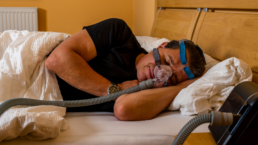Staying Healthy During Your Summer Holidays Abroad
As the summer of 2024 approaches, many Scots are eagerly planning their holidays abroad. While the excitement of exploring new destinations is palpable, it's crucial to prioritise staying healthy during your travels. This guide will equip you with practical strategies for staying healthy on your summer holidays, ensuring you make the most of your well-deserved break.
In this post, you'll learn:
- Essential preventative health measures before you travel
- Tips for maintaining your wellbeing whilst abroad
- How to handle common health issues that may arise on holiday
Let's dive in and set you up for a healthy and enjoyable summer adventure.
1. Pre-Travel Health Preparations
Before you jet off to sunnier climes, a bit of preparation can go a long way to staying healthy.
Get Your Jabs Sorted
First things first, check if you need any vaccinations for your destination. Don't leave this to the last minute – some vaccines need to be administered weeks before travel.
Pack a Personal Health Kit
Assemble a small health kit tailored to your needs. Include:
- Any regular medications (pack extra in case of delays)
- Painkillers
- Plasters and antiseptic wipes
- Insect repellent
- Sun cream (at least SPF 30)
- Rehydration sachets
You don’t want to be that one that’s arrived the paradise destination and turned it to a nightmare because you’ve forgotten to pack a well-stocked health kit that can save your holiday. Mom’s across the world have always been the champions of holidays. You can’t be overprepared, only underprepared.
Travel Insurance: Don't Leave Home Without It
While it might seem like an unnecessary expense, comprehensive travel insurance can be a lifesaver. Make sure it covers any pre-existing conditions and activities you plan to do on holiday.
2. Staying Healthy While Abroad
Now that you're prepared, let's look at how to maintain your health during your summer holidays.
Stay Hydrated, Stay Happy
It's easy to become dehydrated in hot climates, especially if you're more active than usual. Aim to drink at least 2 litres of water a day. If you're unsure about the local water quality, stick to bottled water.
Mind What You Eat
Trying local cuisine is one of the joys of travel, but be mindful of food safety. A study in the National Library of Medicine speaks of “Travellers' diarrhoea.” It affects up to 50% of those visiting developing countries. It is primarily caused by various organisms, with enterotoxigenic Escherichia coli being the main culprit. Travellers can reduce their risk by eating and drinking cautiously. Additionally, they should have a rehydration and treatment plan ready to minimise the illness's impact.
To reduce your risk:
- Opt for freshly cooked, hot foods
- Avoid raw or undercooked meats and seafood
- Be cautious with street food – choose vendors with high turnover and good hygiene practices
- Peel fruits yourself or stick to fruits with thick skins
Keep Moving
While holidays are for relaxation, maintaining some level of physical activity can boost your mood and health. Consider:
- Morning beach walks
- Swimming in the hotel pool
- Exploring your destination on foot
Remember, every little bit of movement counts.
However, be very cautious when swimming in public swimming pools when on holiday as standards for cleaning public pools can be very different from what applies in the UK. Sometimes the pools aren’t cleaned as often or well, and sometimes too much cleaning agents are used. A recent patient of ours suffered from irritable eyes for 10 years from one holiday in 2014.
3. Handling Common Holiday Health Issues
Even with the best preparations, health niggles can occur. Here's how to handle some common issues:
Sunburn: Prevention and Treatment
Despite our familiarity with rainy Scottish weather, many of us still fall victim to sunburn abroad. To avoid this:
- Apply sunscreen generously and frequently
- Seek shade during the hottest part of the day (usually 11am-3pm)
- Wear protective clothing, including a wide-brimmed hat
If you do get burned, cool the skin with damp cloths and apply after-sun lotion. Stay hydrated and out of the sun until your skin heals.
A common skin condition that we see is Pityriasis Versicolor, uneven patches skin changing colour in the sun. It can occur due to increased heat and humidity.
Dealing with Digestive Troubles
If you experience travellers' diarrhoea:
- Stay hydrated with bottled water or oral rehydration solutions
- Eat bland, easily digestible foods
- Consider taking over-the-counter anti-diarrhoeal medication for short-term relief
Be sure to check medications purchased abroad for authenticity. Often times, a Google search of the product can alert you to certain red flags for that drug. Be careful. Seek professional medical advice from an accredited healthcare provider before taking medications.
If symptoms persist for more than a few days or are accompanied by fever, seek further medical attention.
Jet Lag: Minimising the Impact
Travelling across time zones can wreak havoc on your sleep patterns. To minimise jet lag:
- Adjust your sleep schedule a few days before travel
- Staying hydrated during your flight is important for staying healthy
- Try to stay awake until the local bedtime at your destination
Ready, Prepped, Go
Staying healthy during your summer holidays doesn't have to be a chore. With a bit of preparation and mindfulness, you can enjoy your time abroad to the fullest. Remember to:
- Prepare adequately before you travel
- Research common local health issues and prepare accordingly
- Stay hydrated and eat mindfully
- Keep active, but listen to your body
- Know how to handle common health issues
By following these guidelines, you're setting yourself up for a fantastic, healthy holiday. So go ahead, book that trip, and create some unforgettable memories.
Insomnia Help: From Sleep Hygiene to New Medical Options
Insomnia is a prevalent sleep disorder affecting millions worldwide. It is characterised by difficulty falling asleep, staying asleep, or both, despite having adequate opportunity for rest. This article aims to provide comprehensive information about insomnia, its impacts, and various management strategies you can use to take back control of your rest time.
Understanding Insomnia
Insomnia is more than occasional sleeplessness. It's a persistent condition that can significantly impair one's quality of life. Acute insomnia may last from a few days to weeks, while chronic insomnia persists for months or even years. Recognising the difference is crucial for seeking appropriate help. Many people experience short-term sleep difficulties due to stress, travel, or life changes. However, when sleep problems become a more regular occurrence, it may be time to consider whether you're dealing with insomnia.
The Far-Reaching Impact of Insomnia
The effects of insomnia extend far beyond night time discomfort. It often leads to profound consequences on various aspects of daily life:
Decreased Work Performance:
Insomnia can have a significant negative impact on productivity and concentration at work. This can in a lot of cases lead to potential career setbacks as you might find yourself struggling to complete tasks that were once easy, or making mistakes you wouldn't normally make. Simple projects become difficult projects with delays and worse, a lack of trust in the quality of your own work. It’s important to speak out when you start noticing these problems.
Increased Accident Risk:
Fatigue from insomnia can impair judgment and reaction times, raising safety concerns. This is particularly dangerous if you drive or operate machinery regularly.
Mental Health Implications:
Chronic sleep deprivation may contribute to mood disorders, including depression and anxiety. It's a vicious cycle - lack of sleep can worsen mental health, and poor mental health can make it harder to sleep.
Cognitive Function Decline:
Memory, decision-making, and problem-solving abilities can be significantly affected. Insomnia sufferers often find themselves forgetting important details or struggling to focus during important meetings. Ever find yourself lost as to what you came into a room to find? Or forgetting a close friend’s name? Cognitive decline can stem from a number of health reasons. Rule out insomnia as best you can by taking action against it today.
Physical Health:
Insomnia can weaken the immune system, thereby considerably increasing your susceptibility to various serious health issues. Some studies have linked chronic insomnia to an increased risk of cardiovascular problems and diabetes. Your body needs sleep. It needs ample rest. Even the best machine needs to shut down and reset periodically to maintain optimal functionality and your body is no different. Ideally, night time rest should be between seven and eight hours of sleep. Some people don’t sleep at all while some others only manage three or four hours of sleep.
Relationship Strain:
Increased irritability and negative mood changes can negatively impact one’s personal and professional relationships. You might find yourself snapping at loved ones or withdrawing from social activities irrationally and without clear triggers.
Insomnia and Absenteeism
A study published in the National Library of Medicine [Link] found varying degrees of insomnia in 79.9% of the study population. In the study, 57.2% experienced mild insomnia, 21.4% had moderate insomnia, and 1.3% suffered from severe insomnia. Insomnia was more common among those frequently absent from work or leaving due to illness. Those with moderate to severe insomnia had significantly higher total absenteeism compared to those with mild or no insomnia.
Non-Pharmacological Approaches: Sleep Hygiene and Lifestyle Changes
Before considering medication, it's essential to explore non-drug options for managing insomnia. Good sleep hygiene practices can make a significant difference in your sleep quality.
- Maintain a Consistent Sleep Schedule: Regulate your body's internal clock by going to bed and waking up at the same time daily, including weekends. This helps train your body to expect sleep at certain times.
- Create a Relaxing Bedtime Routine: Engage in calming activities like reading or gentle stretching before bed. This signals to your body that it's time to wind down.
- Optimise Your Sleep Environment: Ensure your bedroom is dark, quiet, and cool for optimal sleep conditions. Consider using blackout curtains, earplugs, or a white noise machine if needed.
- Diet and Exercise: Avoid caffeine, alcohol, and large meals close to bedtime. Regular exercise can promote better sleep, but not too close to bedtime.
- Stress Management: Practice relaxation techniques such as meditation, deep breathing exercises, or progressive muscle relaxation. These can help quiet a racing mind and prepare your body for sleep.
- Limit Screen Time: This one is very important. Reduce exposure to blue light from electronic devices at least an hour before bedtime. The blue light can interfere with your body's production of melatonin, the ‘sleep hormone, as it regulates sleep.
Traditional Short-Term Pharmacological Options
In some cases, healthcare providers may prescribe short-term medication to address acute insomnia. Non-benzodiazepine hypnotics are commonly prescribed.
These medications are typically recommended for short durations. Usually up to 4 weeks. It is crucial that you use these under medical supervision due to potential side effects and the risk of dependence.
Emerging Long-Term Pharmacological Options
Recent advancements in sleep medicine have led to the development of a new class of medications. This new category, known as 'orexin receptor antagonists', targets the brain's wake-promoting system.
These medications may be suitable for longer-term use in some patients, under careful medical supervision. As with any medication, it's essential to discuss potential benefits and risks with a healthcare provider first.
When to Seek Professional Help
If insomnia persists despite implementing sleep hygiene practices, consult a healthcare professional as soon as possible. But how do you know when it's time to seek help? Here are some signs that indicate it might be time to consult a sleep specialist:
- Your sleep problems persist for more than a month.
- Insomnia is significantly affecting your daily life, work performance, or relationships.
- You're relying on over-the-counter sleep aids or alcohol to fall asleep.
- You experience symptoms of other sleep disorders, such as loud snoring or gasping for air during sleep.
- You feel anxious or frustrated about your sleep, which makes it even harder to fall asleep.
At CAS Medical, we offer comprehensive sleep assessments. These assessments involve a detailed discussion of your sleep patterns, lifestyle factors, and overall health. We may also recommend a sleep study, which can provide valuable insights into your sleep architecture and identify any underlying sleep disorders.
Based on the results, we develop personalised treatment plans that may include a combination of cognitive behavioural therapy for insomnia (CBT-I), lifestyle modifications, and, if necessary, appropriate medication. Our goal is to help you achieve restful, restorative sleep without relying on long-term medication use when possible.
If required, you can get faster access to see sleep specialists through our network of private healthcare providers.
Cognitive Behavioural Therapy for Insomnia (CBT-I)
CBT-I is a structured program that helps identify and replace thoughts and behaviours that cause or worsen sleep problems with habits that promote sound sleep. This non-pharmacological approach has shown significant effectiveness in treating chronic insomnia.
CBT-I typically involves several components:
- Sleep restriction therapy to improve your sleep efficiency
- Stimulus control therapy to associate your bed with sleep
- Relaxation training to reduce physical tension
- Cognitive therapy to challenge unhelpful thoughts about sleep.
Take Action
Insomnia can be a challenging condition, but effective management options are available. From improving sleep hygiene to exploring new medical treatments, there are numerous paths to better sleep. If you're struggling with persistent sleep issues, don't hesitate to reach out to us for professional help.
Remember, quality sleep is fundamental to overall health and well-being. Taking steps to address insomnia can lead to significant improvements in your daily life and long-term health.
For those experiencing sleep-related breathing issues, such as snoring or pauses in breathing during sleep, it may be worth exploring the possibility that you have sleep apnoea. Click the link to learn more about this condition in our article on understanding sleep apnoea.
Don't let insomnia control your life. Reach out to us today, and let's work together towards better sleep and a healthier you. Contact CAS Medical to discuss your sleep concerns and explore personalised solutions.
Understanding Sleep Apnoea and the Epworth Sleepiness Scale (ESS)
Sleep plays a crucial role in our overall well-being and health. However, numerous individuals suffer from sleep disorders which disrupt their rest, potentially leading to severe health problems. Among the most prevalent and hazardous sleep disorders is sleep apnoea. At CAS Medical, our aim is to help you develop an understanding of sleep apnoea, recognise its warning signs, and take proactive measures to safeguard your health.
The Dangers of Sleep Apnoea
Sleep apnoea is characterised by repeated cessations and restorations of breathing during sleep. These pauses in breathing can range from a few seconds to minutes and can occur 30 times or more an hour, resulting in fragmented sleep and lower blood oxygen levels. This condition can have severe implications for one's health.
Associated Health Risks
If left untreated, sleep apnoea can significantly increase the risk of:
- Hypertension: Recurring episodes of low oxygen levels during sleep can contribute to the development of high blood pressure.
- Cardiovascular Disease: The strain of repeated awakenings can tax the heart, increasing the likelihood of heart attacks, arrhythmias, and other cardiovascular issues.
- Stroke: Sleep apnoea can substantially elevate the risk of suffering a stroke.
- Type 2 Diabetes: There exists a strong link between sleep apnoea and type 2 diabetes due to the body's inability to regulate blood sugar levels properly.
- Depression: Sleep disruptions can have a negative impact on mental health, potentially leading to depression and anxiety.
- Daytime Fatigue: Poor sleep quality can result in severe daytime drowsiness, heightening the risk of accidents at work or while operating a vehicle.
Warning Signs of Sleep Apnoea
Early recognition of the warning signs of sleep apnoea is crucial for timely diagnosis and treatment. Here are some common symptoms:
- Loud Snoring: Often noticed by a bed partner, chronic and loud snoring is a common indicator.
- Gasping for Air During Sleep: Witnessed by others, this can signify interrupted breathing.
- Morning Headaches: Frequent headaches upon waking up are a potential warning sign.
- Excessive Daytime Sleepiness: Feeling excessively sleepy during the day, even after a full night's sleep.
- Difficulty Concentrating: The condition can lead to cognitive issues and problems with memory.
- Irritability: Mood swings and irritability are often caused by poor sleep quality.
Understanding Obstructive Sleep Apnoea (OSA)
The most common form of this condition is Obstructive Sleep Apnoea (OSA). OSA occurs when the muscles in the back of the throat relax excessively, blocking the airway. The severity of OSA can vary:
- Mild OSA: Characterised by 5-15 episodes of interrupted breathing per hour.
- Moderate OSA: Involving 15-30 episodes per hour.
- Severe OSA: Characterised by more than 30 episodes per hour.
The severity of OSA significantly impacts overall health. Individuals suffering from severe OSA are at higher risk for the aforementioned health issues and should seek immediate medical attention.
Undiagnosed Cases in the UK
Sleep apnoea is underdiagnosed, with many individuals being unaware that they suffer from this condition. In the UK alone, it is estimated that millions of people have sleep apnoea, but a large number of cases remain undiagnosed. This lack of awareness can lead to untreated conditions, putting individuals at risk of the serious health complications mentioned earlier.
The Epworth Sleepiness Scale (ESS)
One effective tool to assess your risk for sleep apnoea is the Epworth Sleepiness Scale (ESS). Developed by Dr. Murray Johns, the ESS is a simple, self-administered questionnaire that helps measure daytime sleepiness. It consists of eight questions that ask about your likelihood of dozing off in various daily situations.
Here’s how it works…
The ESS prompts you to rate, on a scale from 0 to 3, your usual chances of dozing off or falling asleep while engaged in eight different activities, such as:
- Sitting and reading
- Watching TV
- Sitting inactive in a public place
- As a passenger in a car for an hour without a break
- Lying down to rest in the afternoon
- Sitting and talking to someone
- Sitting quietly after lunch without alcohol
- In a car, while stopped for a few minutes in traffic.
Your total ESS score can range from 0 to 24. A higher score indicates a greater degree of daytime sleepiness, which could suggest the presence of a sleep disorder like sleep apnoea.
What to Do If You Are at Risk
If you suspect you might have sleep apnoea, or if you score high on the ESS, it's crucial to take action. Here are some steps you can take:
Measure Your Risk
Make use of free self-assessment questionnaires online to evaluate your risk level. Some available resources include the STOP-BANG questionnaire and OSA Partnership Screening Tool.
Schedule a Consultation
Contact CAS Medical for a comprehensive evaluation. Our experienced team can provide a detailed assessment and discuss your symptoms. We offer personalised care to diagnose and manage sleep apnoea effectively.
Participate in a Sleep Study
A sleep study, or polysomnography, is the gold standard for diagnosing sleep apnoea. This test monitors your breathing, oxygen levels, and other vital signs overnight to identify any sleep disorders. Speak to us about getting you on a sleep study via our vast network of private medical practitioners and facilities. It costs less than you think, and the reward it offers can be critical to a better quality of life.
Explore Treatment Options
- If diagnosed with sleep apnoea, several treatment options are available:
- Lifestyle Changes: Weight loss, quitting smoking, and avoiding alcohol can improve symptoms.
- Continuous Positive Airway Pressure (CPAP): This device delivers air pressure through a mask to keep your airways open while you sleep.
- Oral Appliances: These devices help keep your throat open by repositioning your jaw or tongue.
- Surgery: In some cases, surgery might be necessary to remove tissue or correct structural issues causing the apnoea.
Take Action Today
Don't let sleep apnoea go undiagnosed and untreated. It's time to take control of your health and ensure you get the restful sleep you need. If you or a loved one is experiencing symptoms of sleep apnoea, or if you score high on the ESS or similar self-assessment, reach out to us at CAS Medical sooner rather than later. Our experts are here to help you diagnose and manage sleep apnoea, providing you with the best possible care.
Contact us today and schedule a consultation to start your journey to better sleep and better health.
Take Control of Your Liver Health with FibroScan
Tireless. Versatile. Vital. That's your liver - an unsung hero toiling behind the scenes, every minute of every day, to keep your body running smoothly. This mighty organ tackles a staggering array of essential tasks. In this article, we’ll explore the dangers of neglecting your liver and a revolutionary early detection procedure, FibroScan.
From filtering toxins and metabolising medications, to regulating blood clotting and cholesterol levels, the liver does it all. Yet how often do you actually stop to appreciate what a workhouse you liver is? Likely not enough. And that’s a problem, because an alarming number of people are unknowingly living with a condition that puts undue stress on this all-star organ: non-alcoholic fatty liver disease (NAFLD). In fact, a staggering 1 in 4 adults in the UK has NAFLD, with obesity and diabetes being leading risk factors. The scary part? Most don’t experience any symptoms whatsoever… until it’s too late.
Dangers of Not Addressing Fatty Liver Disease
Left unchecked over time, NAFLD can progress into something far more severe – hepatic fibrosis (scarring), cirrhosis, liver failure, even cancer. A fate no liver deserves after its lifetime of tireless service to your health. That’s why at CAS Medical, we’re determined to empower you with the resources to take true control of your liver’s wellbeing.
Introducing FibroScan – Your Window to Liver Health
Through our partnership with LiverScan, we offer this cutting-edge FibroScan technology. A specialised ultrasound imaging that literally opens a window into the state of your liver. This quick, painless, non-invasive scan deploys safe shear wave technology to assess your liver for fat deposition and fibrosis levels – two key risk factors that can progress to chronic, irreversible damage if left unchecked.
But FibroScan isn’t just a high-tech diagnostic tool. It’s an empowerment tool, designed to shed light on your liver health before it takes a turn for the worse.
From Insight to Tailored Action
After undergoing your FibroScan, our experienced medical team will comprehensively review the results with you. We’ll translate those insights into a personalised plan for monitoring and actively improving your liver health through lifestyle adjustments.
If warranted, we can also coordinate additional diagnostic liver tests or specialist referrals. Our holistic approach also evaluates metabolic factors like obesity, diabetes, and diet that frequently co-occur with NAFLD. Identifying connections is key for sustained lifestyle changes.
Crucially, the FibroScan gives you a quantitative baseline to track progress. Routine follow-up scans provide measurable feedback on how effectively your efforts are reducing liver fat and fibrosis over time. This motivating data holds you accountable while celebrating wins along your recovery journey.
Be Proactive, Not Reactive
The sobering truth? Millions of people in the UK have NAFLD and don’t realise it due to a lack of symptoms. Early detection is paramount for protecting your liver’s vital role. Through our convenient FibroScan package (just £375), you can gain unprecedented insights into your liver health and take proactive steps to optimise it. No more guesswork.
After all, your liver is the ultimate unsung hero of your health. It’s time to stop taking this overachieving organ for granted.
Contact CAS Medical today to schedule your FibroScan – because when it comes to your liver, an ounce of prevention is worth a pound of cure.



